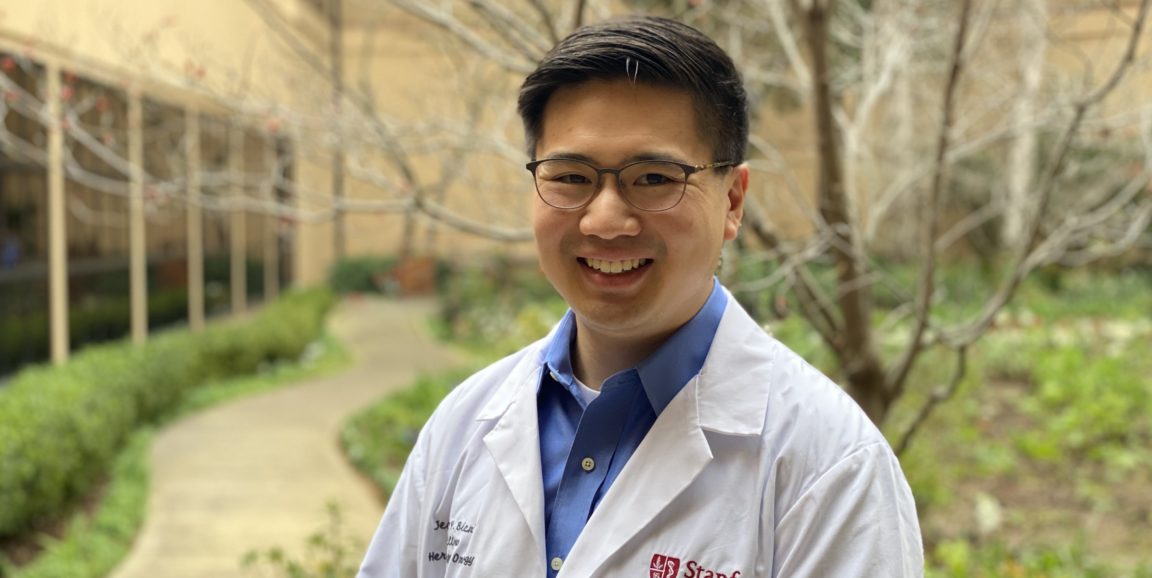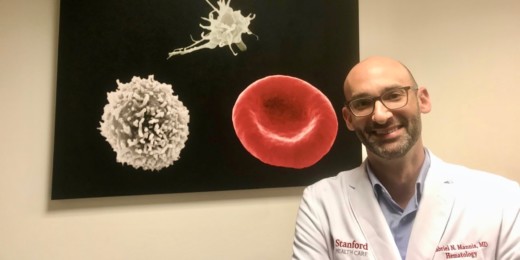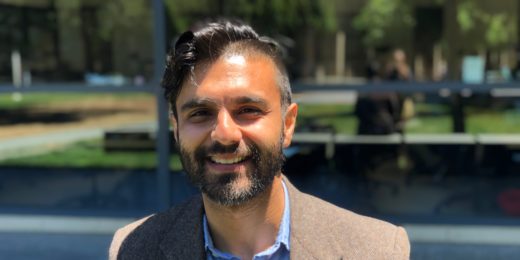Before Halloween, Jeffrey Bien, MD, and his wife, Emmie, asked their two-year-old son many times what costume he wanted to wear. Did he want to be a puppy? A superhero?
The answer was always the same: "Pants."
The couple dressed the boy as requested, took him trick-or-treating, and then Bien shared the experience on Twitter. He awoke the next morning to find that his son had become an Internet sensation.
I spoke with Bien, a first-year fellow in oncology and hematology, about his 15 minutes of Internet fame and about his work as a cancer specialist in training.
You had an eventful Halloween. How did your son's pants costume come about?
My wife started asking him pretty early on what he wanted to be, and she would show him pictures of different animals or different kids wearing costumes, and he was really remarkably consistent on what he wanted to be. He kept saying he wanted to be pants.
My wife went and got him a big pair of pants, and we went up to visit her family in the Seattle area, where her sister and her mom helped to make some adjustments to the costume.
We put him in it, and he ran around with it. He loved it.
Have you been active on Twitter for a while?
I started while I was in college, in 2008. I am really into Bruce Springsteen, and I was fully engaged in Springsteen Twitter for many years. Then more recently in residency, I picked it up a lot more, with medical advocacy and medical education and policy stuff. I had like 700 or 800 followers.
I posted this picture because I thought it was cute and it was funny. I went to bed that night thinking it might be my most recognized tweet I ever had, which was not a high bar. Then I woke up in the morning with texts from friends all over the country saying your kid's on the front page of everything right now.
About 42 million people saw my tweet on Twitter, and it got 1.2 million likes. The bigger thing was that some people screenshot it and posted it to a bunch of other sites, like Instagram, Facebook and Reddit.
Why do you think it resonated with people?
I think that there's something universal that people recognized about trying to negotiate with a young child. They recognized that this was clearly the child's idea, and that we kind of just ran with it.
Pivoting to your specialty, why did you decide to focus on oncology?
I like the patient continuity in cancer medicine. I like spending time with the patients, learning about their lives and trying to figure out what we can do to help them achieve their goals. That's a core aspect of being an oncologist.
The treatments for different cancers are sometimes pretty tough. Once you get to know a patient pretty well, you can have a conversation and get a sense from them about what kind of things are priorities for them in their life and how to best get them there in the context of their disease.
What are your research interests?
I'm interested in why different people from different backgrounds are affected differently by cancer. Specifically I'm interested in the area of detection -- how we can detect and screen for early-stage cancers more effectively.
For example, in some Asian countries -- in Korea and Japan -- they will do screening endoscopies, looking at the stomach and esophagus with an endoscope to make sure patients don't have early gastric cancer. In America, gastric cancer and esophageal cancer are less common, so we don't do screening endoscopies. But there are still a lot of patients that come from Korea and Japan, and maybe they would benefit from having the screening. It becomes complicated because there are some aspects of it that are genetic, and some aspects are environmental.
I came here because I think there's a lot of interest in that area at Stanford specifically.
Photo by Daphne Sashin






